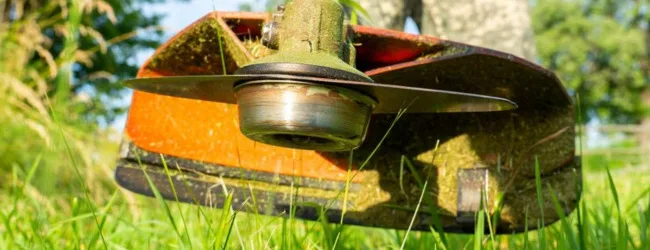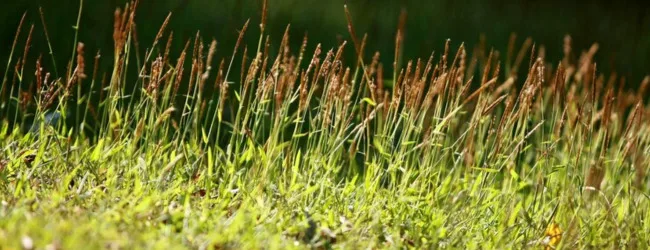Table of contents
- What is Weed Management?
- Why is Weed Management Important?
- Types of Weeds Found in Farms
- Common Weed Management Methods
- When Should You Do Weed Control?
- Tips for Effective Weed Management
- Cost of Weed Management in India (2025 Estimates)
- Environmental & Health Considerations
- Conclusion
- Frequently Asked Questions (FAQs)
Weeds are unwanted plants that grow alongside crops and compete with them for sunlight, water, nutrients, and space. Weed management is essential in farming to ensure healthy plant growth, improve productivity, and increase profits. Without proper weed control, crop yields can drop by 30% to even 90% in some cases. This guide explains everything about weed management in the simplest way possible—perfect for beginners, students, and farmers alike.
What is Weed Management?

Weed management refers to all the methods used to prevent the growth and spread of weeds in farms, gardens, and fields. It’s not just about removing weeds once; they must be controlled at every stage to protect crops.
Why is Weed Management Important?
Here are some major reasons why weed control is necessary:
- 🌱 Reduces competition for essential resources like water and nutrients.
- 🌾 Boosts crop yields by 30–60% (depending on crop type and weed pressure).
- 💰 Increases farmer profits by reducing crop loss.
- 🐛 Minimises pest and disease attacks, as many weeds act as alternate hosts.
- 🚜 Improves the efficiency of fertilisers and irrigation systems.
Types of Weeds Found in Farms
| Type | Examples | Characteristics |
|---|---|---|
| Grassy Weeds | Cynodon, Echinochloa | Thin, long leaves, similar to crop grass |
| Broadleaf Weeds | Amaranthus, Parthenium | Wide leaves, visible veins |
| Sedges | Cyperus rotundus (Nut Grass) | Triangular stems, tough roots |
💡 Pro Tip: If you want to start a Business but have too many doubts, connect with a Business expert from Boss Wallah for guidance – Check Out
Common Weed Management Methods
1. Manual Weed Management (Hand Weeding)
- Tools used: Khurpi, hoe, sickle.
- Best for: Small farms and kitchen gardens.
- ✅ Low cost, eco-friendly.
- ❌ Labour-intensive and time-consuming.
2. Mechanical Weed Control
- Tools used: Power weeders, rotary tillers.
- ✅ Faster than manual methods.
- ❌ Requires fuel or electricity.
3. Cultural Weed Management
- Smart farming practices that naturally suppress weeds.
- Crop rotation
- Proper spacing of plants
- Mulching with straw or plastic
- ✅ Prevents weed growth without chemicals.
4. Chemical Weed Management (Using Herbicides)
- Types:
- Pre-emergence: Applied before weeds grow (e.g., Pendimethalin)
- Post-emergence: Applied after weeds grow (e.g., Glyphosate)
- ✅ Highly effective and fast.
- ❌ Can harm crops if used improperly.
5. Biological Weed Management
- Using natural enemies like insects, fungi, or bacteria to kill weeds.
- Example: Zygogramma bicolorata to control Parthenium.
- ✅ Eco-friendly and sustainable.
- ❌ Takes time to show results.
6. Integrated Weed Management (IWM)
Combines 2 or more methods (manual + chemical + cultural) for best results.
🔥 Most effective long-term strategy to manage weeds sustainably.
When Should You Do Weed Control?
| Crop Stage | Ideal Weed Control Time |
|---|---|
| Pre-sowing | Field tillage, pre-emergence herbicides |
| Early growth (15-30 days) | Manual/mechanical weeding, mulching |
| Mid to late growth | Post-emergence herbicides, spot removal |
📌 First 30 days after sowing are most crucial for weed management.
Tips for Effective Weed Management

- 🌾 Choose weed-free seeds.
- 🚜 Plough fields properly before sowing.
- 🌿 Use mulch or cover crops.
- 💧 Avoid over-irrigation (many weeds love water!).
- 🧪 Always read herbicide labels before spraying.
- 🧤 Wear protective clothing when using chemicals.
Cost of Weed Management in India (2025 Estimates)
| Method | Approximate Cost (₹/acre) |
|---|---|
| Manual weeding (labor) | ₹1,000 – ₹2,000 |
| Mechanical weeder usage | ₹500 – ₹1,000 |
| Herbicide application | ₹300 – ₹700 |
| Integrated management | ₹1,500 – ₹2,500 |
ALSO READ | What is Shifting Agriculture? A Complete Guide to Ancient Farming Practice
Environmental & Health Considerations
- Overuse of chemicals can lead to soil pollution and resistant weeds.
- Always follow safe disposal of herbicide containers.
- Prefer eco-friendly options whenever possible.
Need Expert Guidance?
Starting a business can be challenging, but you don’t have to do it alone! At Boss Wallah, our 2,000+ business experts are ready to provide valuable insights and guidance. Whether you need help with marketing, finance, sourcing, or any other area of any business, our business experts are here to help you succeed
Confused about Which Business to Start?
Want to start your own business but unsure which one to choose? Explore Boss Wallah, where you’ll find 500+ courses by successful business owners, featuring practical, step-by-step guides on starting and growing various businesses.
Find your perfect business idea today
Conclusion
Weed management is more than just removing unwanted plants—it’s a smart farming practice that ensures healthy crops, better yields, and more profit. Whether you’re a small-scale farmer or a student learning agriculture, understanding weed control techniques can transform your farming outcomes. Adopt the right method based on your crop, land size, and budget, and always think long-term with sustainable strategies.
Frequently Asked Questions (FAQs)
1. What is weed management in agriculture?
It refers to all techniques used to prevent or control weed growth that competes with crops.
2. Why is weed control necessary?
To avoid crop loss, reduce input waste, and improve productivity.
3. What is the best method of weed control?
Integrated Weed Management (IWM) is considered the most effective.
4. Are herbicides safe for the environment?
When used properly and in the right dosage, they are safe. Overuse can be harmful.
5. What are the major types of weeds?
Grassy weeds, broadleaf weeds, and sedges.
6. Can weeds harm animals or humans?
Yes. Some weeds are toxic and can cause allergies or poisoning.
7. How do I know which herbicide to use?
Consult agricultural extension officers or refer to ICAR guidelines.
8. When is the best time to remove weeds?
Within the first 30 days of sowing crops.
9. Is manual weeding effective?
Yes, especially in small farms, though it requires more labor.
10. What is biological weed control?
It involves using living organisms like insects or fungi to suppress weeds.


